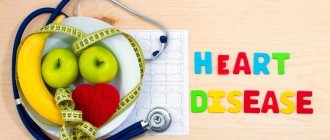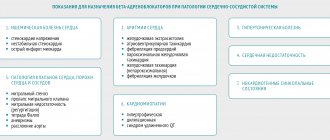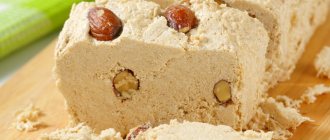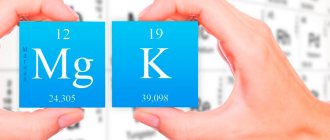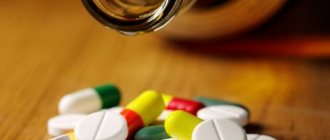Home — For the public
- Map of medical organizations
- Vaccination
- Clinical examination
- Fluorography
- Addresses and opening hours of clinics
- Emergency rooms
- Oncology
- Where to take an HIV test
- Healthy child's office
- Services
- Prevention of CVD
- Disease Prevention
- World Patient Safety Day
- Newspaper "Medical News"
- specialist
- School of Health
— Disease prevention
- HIV infection
- All about vaccination
- All about proper nutrition
- Hepatitis
- Flu
- Dementia
- Schoolchildren's health
- STD
- Tick-borne encephalitis
- Whooping cough
- Measles
- Legionellosis
- Meningococcal infection
- Oncology
- Acute intestinal infection
- Pediculosis
- First aid
- Pneumococcal infection
- Pneumonia
- Prevention of rabies
- Dependency Prevention
- Rotavirus infection
- Diabetes
- Cardiovascular diseases
- Injuries
- Tuberculosis
- Tularemia
- Physical activity
- Obstructive pulmonary disease
- Exotic infections
- Ecology
- Why is swimming in ponds dangerous?
— Cardiovascular diseases — Nutrition for cardiovascular diseases
Can a certain diet improve the condition of a person with heart disease or is this another myth? To answer the question, it is enough to recall WHO data that lifestyle has up to 50% of the impact on health. And diet is as important a part of lifestyle as physical activity and the presence or absence of stress. A diet for cardiovascular diseases (or CVD) helps maintain normal body weight, protects against the development of diabetes mellitus, and increased levels of “bad” cholesterol. Every person can adjust their diet and monitor it.
How should you eat?
Products for blood vessels and the heart should help lower blood pressure, reduce swelling, and eliminate shortness of breath. Nutrition should prevent the development of atherosclerosis, heart attack and stroke.
The diet should include foods that cleanse the blood vessels of the brain and strengthen the heart muscle. They must contain:
- potassium is an essential trace element that removes fluid, reduces blood pressure, improves heart function and regulates its rhythm;
- dietary fiber – removes heavy metal salts and prevents bad cholesterol from being absorbed in the gastrointestinal tract;
- magnesium – dilates blood vessels in the brain, reduces blood pressure, prevents the development of spasms;
- polyunsaturated omega-3 and omega-6 fatty acids;
- calcium – helps remove cholesterol;
- folic acid – prevents the development of cerebral atherosclerosis;
- vitamin A – strengthens capillary walls;
- B vitamins (B1 regulates heart contraction, B6 relieves vascular spasms);
- Vitamin E – prevents thrombus formation, relieves vascular inflammation.
Foods good for the heart and blood vessels
Nutritionists advise eating more often (up to 5-6 times a day), but in small portions. At night it is useful to drink kefir, which speeds up the digestion process and helps eliminate harmful substances.
For breakfast, it is recommended to eat complex carbohydrates: durum wheat pasta, grain bread, cereals. For lunch and dinner - poultry, fish, seafood, cottage cheese. For drinks, preference should be given to plain water, green tea, herbal infusion, and natural juices without sugar.
Cardiologists believe that people with heart and cerebral vascular diseases should adhere to a Mediterranean diet, that is, seafood, fish, vegetables, fruits, herbs, and olive oil should be included in the diet. Salt should be reduced as much as possible so that fluid is not retained in the body and blood pressure does not increase. It is advisable to give up animal fats, which not only increase the level of bad cholesterol and damage blood vessels, but also contribute to weight gain.
Garlic
Everyone knows the antiviral properties of garlic. However, as a means of preventing hypertension, this product is also extremely useful, thanks to more than 60 components of its composition, which allows you to lower blood pressure by 15-20 divisions of the tonometer without medications. Nitric oxide and hydrogen sulfide contained in garlic reduce vascular hypertonicity and further lower blood pressure.
Find out more: The benefits and harms of garlic, garlic treatment
The best foods for the heart and blood vessels
This list includes products that clean blood vessels and strengthen the heart muscle. Most of them are of plant origin.
Garlic
Cardiologists believe that one clove of garlic a day reduces the risk of developing heart and vascular diseases. The hydrogen sulfide and nitric oxide contained in it reduce vascular tone, resulting in a drop in blood pressure. In addition, garlic is a natural antibiotic that protects the body from acute respiratory viral infections and influenza.
Grapefruit
Contains glycosides that normalize digestive processes, prevent the development of atherosclerosis, and improve the functioning of the heart and vascular system.
Whole grains
Whole grains contain a very heart-healthy element - potassium. Porridge, bran, and products made from wholemeal flour help remove cholesterol from the body.
Apples
It is useful for people with cardiovascular disorders to eat apples and even arrange apple fasting days to avoid gaining excess weight. Pectin and vegetable fiber help get rid of cholesterol and increase the elasticity of blood vessels. Apples are a source of microelements and vitamins.
Pomegranate
Doctors consider pomegranate one of the best foods for the heart and blood vessels. This fruit thins the blood, lowers cholesterol levels, and clears plaque from blood vessels. It is recommended to eat pomegranate fresh.
Pomegranate is an indispensable product for vascular and cardiac pathologies.
Tomatoes
They are rich in magnesium, which strengthens the heart muscle, and the antioxidant lycopene, which maintains the tone of blood vessels.
Salmon and salmon
The high content of omega-3 fatty acids makes these types of fish indispensable for maintaining healthy blood vessels and the heart. Regular consumption of salmon reduces the likelihood of developing a heart attack, normalizes blood pressure and blood clotting. Salmon contains the antioxidant astaxanthin, which helps preserve memory for many years.
Nuts
The healthiest ones are almonds and walnuts. They contain the most monounsaturated fats. Nuts quickly satisfy hunger and help absorb fiber.
Oatmeal
Oatmeal in the morning saturates the body with folates, potassium, and omega-3 fatty acids. Oatmeal keeps blood vessels toned and helps lower cholesterol.
Olive oil
Doctors have long noticed that in countries where exclusively olive oil is used for cooking, the mortality rate from heart attacks is very low. Monounsaturated fats contained in oil help get rid of cholesterol plaques and fight blood clots. Virgin oil is especially useful.
Berries
Reduce the risk of developing pathologies of the heart and blood vessels. You can eat any berries to your taste: strawberries, blueberries, blackberries, raspberries, strawberries, cherries, black and red currants and others.
Fresh berries should be present in the diet of heart patients
Pumpkin
Pumpkin contains beta-keratin, potassium, and vitamin C, which prevent the development of atherosclerosis. It normalizes blood pressure and water-salt balance, cleanses blood vessels.
Soybeans
Supplies proteins to the body and lowers the level of bad cholesterol. You need to use only natural, but not genetically modified products.
bitter chocolate
Chocolate with a cocoa content of at least 70% is good for the heart. Thanks to the flavonoids found in cocoa beans, it improves the quality of blood cells, prevents blood clots and thus reduces the likelihood of developing cardiovascular diseases. But it is not recommended to eat more than two or three pieces of chocolate a day.
Dark chocolate reduces the risk of developing cardiovascular diseases
Mushrooms
They contain ergotianine, an antioxidant that stimulates the immune system, improves blood composition, and prevents the development of vascular and heart diseases. In addition, mushrooms contain a lot of vitamin B and D, fiber, protein, magnesium, phosphorus, potassium, iron, zinc, manganese, and selenium.
Seeds
To strengthen the heart muscle and blood vessels per day, it is enough to eat one handful of seeds, which contain omega-3 and omega-6 fatty acids.
Legumes
Lentils, beans and chickpeas are especially healthy. They are rich in fiber, calcium, omega-3 fatty acids.
Avocado
To reduce bad cholesterol and increase good cholesterol, you need to constantly add pieces of this exotic fruit to salads and meat dishes. Avocado contains enzymes that help absorb carotenoids.
Avocado is a fruit that is good for blood vessels and the heart.
Linseed oil
It contains omega-6 and omega-3 fatty acids. It can be used for cooking or added to food in small quantities, such as salads or cereals.
Pomegranate
This fruit is considered the best remedy for the prevention of heart disease. It exhibits its exceptional properties when consumed in the form of freshly squeezed juice or fresh. Natural enzymes and biostimulants of pomegranate stimulate blood circulation in blood vessels, which helps reduce cholesterol levels, thin the blood, and effectively resist atherosclerosis and the development of cardiovascular pathologies.
Antioxidants found in pomegranate juice, according to research by American scientists, can resist prostate cancer and increase potency by stimulating blood circulation in the pelvic organs. To achieve a pronounced therapeutic effect, you need to drink 200 ml (a glass) of freshly squeezed pomegranate juice per day.
Find out more: Useful properties and recipes for using pomegranate
Harmful products
It is important to know not only about foods that are good for the heart and blood vessels, but also about foods that are harmful. If you have heart disease, it is necessary to limit the consumption of some foods, and it is advisable to avoid some completely. Doctors consider the following to be harmful:
- Salt. When consumed in excess, blood pressure increases, and this negatively affects the condition of blood vessels. Salt retains fluid, which increases the load on the heart.
- Fried food. Leads to the deposition of cholesterol on the walls of blood vessels and increases blood pressure.
- Meat. According to doctors, frequent use may cause problems with the heart and blood vessels. There is no need to completely give up meat (veal, lean beef, poultry), but you should eat it no more than twice a week.
- Alcoholic drinks. They cause vascular spasms, which can lead to oxygen starvation.
- Products with preservatives. The harmful substances they contain worsen the condition of the walls of blood vessels.
- Strong coffee and tea.
- Carbonated drinks.
- Sugar and confectionery.
Apples
If you eat at least one apple every day, you will soon notice the positive effects of eating these fruits on all organs and systems. A significant share of this effect is due to the prevention of heart and vascular diseases, as well as reducing the risk of developing cancer.
Apple fiber, pectin fiber and a large amount of vitamins help reduce blood cholesterol levels. Fasting days, based on eating apples, help reduce swelling, normalize blood pressure, and stimulate the digestive system.
Potassium contained in apple pulp normalizes the activity of the excretory system. Pectin fibers bind toxins in the intestines and actively evacuate them from the body, cleansing the human body. Prevention of gout and diabetes when eating apples occurs due to the normalization of the acid-base balance with organic malic acids.
Find out more: The health benefits and harms of apples
The main principles of healthy eating
- Limit consumption of animal fats. Include only lean meat (beef, veal, white poultry) in moderation in your diet.
- Reduce the amount of dairy products.
- Vegetable side dishes should be prepared for breakfast, lunch and dinner. They should make up half the serving. To prepare, use several types of vegetables that can be baked, stewed or boiled.
- Your diet must include foods containing omega-3 fatty acids. They are found in fish, seeds, nuts, and vegetable oil.
- Limit salt so that fluid does not retain in the body and there is no unnecessary stress on the heart.
- Avoid fried, smoked and spicy foods.
- Avoid alcohol, caffeine, canned and refined foods.
Broccoli
Broccoli is considered one of the most nutritious and healthy of all types of the cabbage family due to its exceptional composition:
- Potassium,
- Magnesium,
- Phosphorus,
- Manganese,
- Vitamins B, C, D,
- Plant fiber.
These substances allow broccoli to actively resist the development of diabetes and cardiovascular diseases.
Find out more: Benefits of broccoli and harm of broccoli
How does sea food affect the cardiovascular system - 6 facts
First of all, it is useful because it contains polyunsaturated fatty acids (PUFAs). It is known that PUFAs are not listed as an independently synthesized metabolite of the human body; therefore, they need to be supplied with food from outside , as irreplaceable substrates.
According to scientists, the main representative of omega-3 is alpha-linolenic acid. Eicosapentaenoic and docosahexaenoic acids are formed from alpha-linolenic fatty acids.
It has been proven that their benefits (as a result of a series of biochemical transformations at the cellular level) are as follows:
- They favor the removal of atherogenic lipoproteins from the blood by the liver itself and peripheral tissues, and also increase the utilization of monocarboxylic hydroxy acids of bile with intestinal derivatives.
- They provide good protection of myocardial cells from the onset of ventricular tachycardia (VT), a complication of which can be sudden cardiac death.
- They lead to a reduction in the formation of blood clots and complications (due to the effect on platelets - blood cells responsible for clotting).
- Achieving the target range of triacylglycerides and very low density lipoproteins in the bloodstream through the following biomechanism: reducing the formation of triacylglycerides and various lipoprotein particles in the liver tissue.
- Favors the normalization of prostaglandin I2 production , which favors vasodilation and reduces platelet aggregation.
- They have an anti-inflammatory effect.
Sample menu for the day, according to diet No. 10
Breakfast (8 am) - cottage cheese with sour cream, semolina or rice porridge with milk, bread with butter, tea with milk.
Lunch (13 hours) - pureed vegetable soup, steamed meatballs in white sauce, crumbly rice porridge, baked apples or pearl barley soup with vegetables, boiled meat with carrot puree, tea.
Afternoon snack (16:00) - omelet and apple-carrot puree, rosehip infusion.
Dinner (19 o'clock) - buckwheat cottage cheese casserole, vegetable cutlets with prunes, jelly or curd pudding, potatoes with boiled fish, jelly.
Late dinner (22:00) - a glass of yogurt or fruit juice, a biscuit.
Mushrooms
This product can be used to combat free radicals that negatively affect the cardiovascular system and cause cancer. This is facilitated by a special substance found in mushrooms - ergotianine, which neutralizes free radicals. In addition to this valuable quality, mushrooms are able to increase immunity and reduce cholesterol levels, and their properties are not lost even after cooking. Mushrooms contain the following substances:
- Plant fiber,
- Plant proteins,
- Vitamins of groups B, D,
- Microelements: selenium, magnesium, potassium, zinc, phosphorus, iron.
Drugs that help strengthen the heart muscle
There are medications that can restore metabolism in weakened heart cells and replenish the supply of vitamins and essential electrolytes.
It should be noted that from the point of view of evidence-based medicine, they do not correspond to the modern level of effectiveness. But practice shows that after a course of use a person experiences positive changes.
Such means include:
- Riboxin,
- Cocarboxylase,
- Asparkam and Panangin.
conclusions
Adequate treatment of diseases of the circulatory system includes not only drug therapy, but also a well-chosen diet. Doctors recommend taking a comprehensive approach to the treatment of pathologies and not equating a balanced diet with restrictions. A variety of seafood, vegetable fats and meat, fresh fruits and vegetables replenishes the supply of essential substances and prevents the development of pathologies. A combination of diet, physical activity and giving up bad habits is the key to good health and longevity.
Which type of fish is more beneficial?
According to scientists of the All-Russian Society of Cardiology (VNOK), ANY fish food , including fatty seafood, has a beneficial effect on the human body. Although this is a controversial issue: marine representatives have more fat, but also more nutritional content than freshwater inhabitants.
Let's look at the most common options:
- Salmon family. It is known that the salmon family is considered the most abundant source of omega-3. Well-known species are trout, salmon, pink salmon, chum salmon and sockeye salmon, which can be bought at the grocery market and in shopping centers. The listed range has a different price range, therefore, everyone can find something according to the size of their wallet to enrich themselves with the necessary proteins and fats, microelements, vitamins and fish oil.
- Halibut is a family of flounder. First of all, it is a good source of easily digestible protein, polyunsaturated fatty acids, and minerals. The price is two times lower than salmon.
- Cod is a member of the cod family. It is common knowledge that cod is the lowest calorie option of the variety on the grocery market; at the same time, it is from it that fish oil is extracted, since its meat is rated for maximum usefulness. .
- Herring is a popular type on the Russian food market due to its nutritional properties and low price. It has been proven that fried or baked herring has a particularly beneficial effect on the functioning of the gastrointestinal tract (there is a specific unpleasant smell), but it is better to neglect salted or smoked herring, since salt is not a preventive measure for CVD.
- Mackerel is a favorite of many due to its good nutritional qualities and moderate cost.
- Tuna - used as an ingredient in rolls, sushi, wok noodles. The delicate taste is compared to veal.
- Capelin is a small fish from the smelt family. It has been proven that capelin has beneficial health properties and has a delicate and juicy taste when cooked correctly.
You can find out more about the sources of various fatty acids in the picture below:
Below we will familiarize ourselves with other facts about the positive effects of seafood on the human body.
See also:
TOP 10 nuts necessary for heart health.
